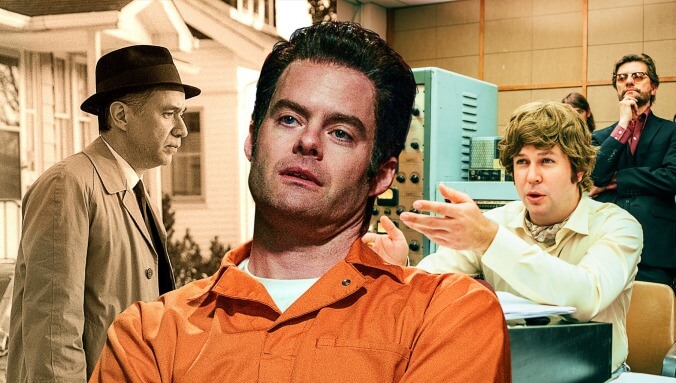The 6 most scarily accurate parodies on Documentary Now!
Before the mockumentary series returns this week, let's look back on the sendups that totally nailed their source material

Last month, DOC NYC presented a series called “Documentary Now…And Forever!” at the IFC Center ahead of the fourth season of the mockumentary series Documentary Now!, which premieres October 19th on IFC/AMC+ after a three-year hiatus. (Keep an eye out for The A.V. Club’s recaps each week.) And rightly so: The brainchild of SNL alums Seth Meyers, Bill Hader, and Fred Armisen, each episode of Documentary Now! parodies a seminal documentary, from classics to more modern fare—and does so very, very well. Nearly a decade ago, “History Of Punk: Ian Rubbish And The Bizzaros,” which chronicled a British punk musician with a deep respect for Margaret Thatcher, debuted on SNL and inspired Hader to develop the concept. And over three seasons, the show’s best episodes are delicate equations that combine technical and thematic precision with a dry, absurd sense of humor. Here are six such selections. Please let us know what we missed—or what you’d like to see Doc Now! tackle next—in the comments.

 Keep scrolling for more great stories from The A.V. Club.
Keep scrolling for more great stories from The A.V. Club.